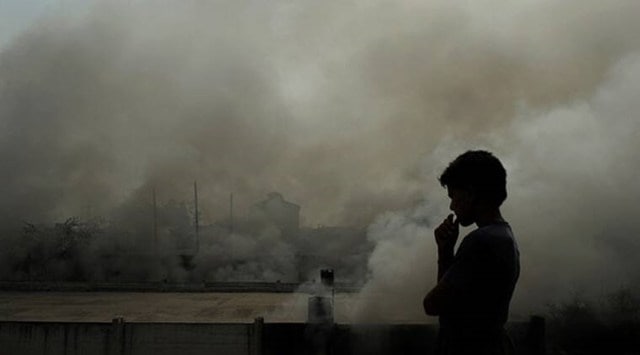Greater budget allocation for high-emission sectors: Environmental experts
Kalpavriksh founder-member Ashish Kothari expresses concern that several key terms such as ecology, environment and ecosystem did not find a mention in the budget speech, terming it as a measure of the level of seriousness of the government towards the environmental issue
 The transport sector contributes up to 61% of the emission load of carbon monoxide, said the inventory. (File/Representational)
The transport sector contributes up to 61% of the emission load of carbon monoxide, said the inventory. (File/Representational)The Center for Environment, Climate Change and Sustainable Development (CECCSD) at the Impact and Policy Research Institute (IMPRI) organised a panel discussion on the topic, ‘The Environment and Union Budget 2022-23’, on Thursday.
During the discussion, Ashish Kothari, founder-member, Kalpavriksh, Pune, pointed out that the allocation for the National Clean Air Programme (NCAP) has been reduced despite the high levels of air pollution in urban areas.
Kothari expressed concern that several key terms such as ecology, environment, ecosystem, pollution, wildlife, and biodiversity did not find a mention in the budget speech, terming it as a measure of the level of seriousness of the government towards the environmental issue.
Dr Madhu Verma, Chief Economist, World Resources Institute (WRI), said that the budget has been called a “booster budget” but the booster shots are not equally distributed among all the sectors. “One can observe an increase in the value given to Clean India, and Project Tiger and Project Elephant which had seen a downfall in allocation in the last couple of years. If we go deeper, we do see a lot of development happening around oceans but the budget for the National Coastal Mission was reduced. On the other hand, the budgetary allocation required to meet India’s commitments at the international level to deal with the environmental crisis is insufficient,” she added.
Distinguished Fellow in Environmental Policy and Governance, Centre for Environment and Development, ATREE, Bengaluru, Dr Sharachchandra Lele, said, “Any government has three tools at its disposal for the effective implementation of schemes – fiscal, administrative, and legal. A budget is a fiscal tool of the government. Merely allocating funds will not lead to any positive outcome. Higher funds alone do not ensure anything, unless significant changes are made to the structure and the functioning as well,” he said.
Dr Lele added, “The regulatory part of the ministry of environment is completely gutted in terms of how it functions on the ground or internally when it comes to environmental clearances, forest clearances. The budget for the Central Pollution Control Board (CPCB) has gone up by 0.5 crore and the budget for the National Green Tribunal has been hiked by a few crores. The NGT benches are not functional and the agency suffers from not having adequate fact finding happening on the ground when petitions come to it.”
Co-convener, South Asian People’s Action on Climate Crisis (SAPACC), Soumya Dutta, accused the government of being hypocritical towards the environmental issue.
“On the one hand, the finance minister called climate change the greatest risk, on the other hand, we saw a budgetary push for high emission and high energy sectors. Road transport has seen a 68 per cent increase. The Ministry for Civil Aviation, which is one of the major polluters, was allocated Rs 10,677 crore, more than thrice of what the environment ministry was allocated. Several important angles such as air quality, disaster resilience, environmental sanitation, and eradication of manual scavenging have not been given much consideration,” he said.
Notably, Rs 3,030 crore was allocated to the Ministry of Environment, Forest and Climate Change (MOEFCC) in the Union budget for the fiscal year 2022-23. This was higher than last budget’s allocation of Rs 2,520 crore.







